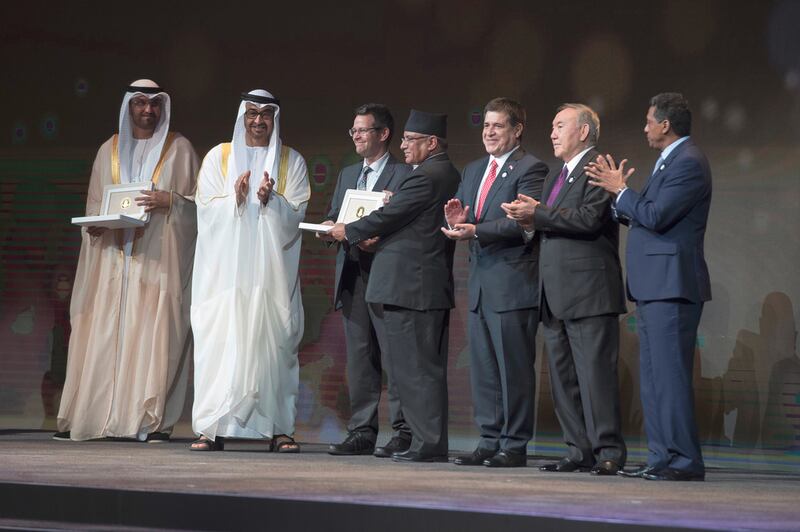More than a billion people around the world still live without electricity to power their homes, schools and clinics, and to drive their livelihoods. A great deal of progress has been made over the last several decades, and today, I believe we are at a tipping point.
In my first year as CEO of Practical Action I enjoyed one of the proudest moments of my career when I received the Zayed Future Energy Prize on behalf of the organisation. The award was given in recognition of the work the organisation has done over the past 40 years to bring clean, modern energy to some of the most remote communities on Earth.
The timing was especially important. The company proved that the technology exists today to enable everyone on earth to access modern, clean energy in a sustainable way. We know this is because we’ve worked with communities in many parts of the world and built simple sustainable electricity systems, powered by solar, hydro and wind.
We know that UN Sustainable Development Goal 7 - Sustainable Energy for All - can become a reality, within a very short period of time. We are actively working towards this vision. But we cannot do it alone. We need a whole community of like-minded people from the private sector, governments, international organisations such as the World Bank and the United Nations, local authorities and wider civil society to join us.
_______________
Zayed Future Energy Prize
Record number of entries for Zayed Future Energy Prize
Innovation, not politics, will lead the way on climate
Too cool for a school: Bangladeshi pupils set for traditional Arab wind towers
_______________
If we work together, we can create the conditions needed: a properly trained local workforce; access to credit, demand and financial systems suitable for people living in remote, isolated places; and distribution networks capable of bringing universal energy access.
For the past seven years, we have produced an annual report, the Poor People's Energy Outlook Report, which captures the evidence of our work and brings the voices of people we have worked with to the wider world. We believe that it has been highly influential in changing the energy access debate.
Through the report, we have introduced new methods for measuring levels of energy access; called for changes to the planning process to prioritise those without energy access; and provided evidence of the transformative effect energy access can have on the ability of people to live productive lives and move out of poverty.
In the 2016 report we shared energy plans for 12 different communities living in Bangladesh, Kenya and Togo, which were developed based on the communities' own priorities. In our latest 2017 edition, we expanded these community plans to the national level and produced financing estimates.
Our research found that a wide variety of factors are important in the quest to bring sustainable energy to all and alleviate poverty. An important finding is that mini-grids and stand-alone home energy systems have been shown to be the least expensive way to reduce energy poverty for those still not connected to the grid.
We have also found that financing systems at the national level need to be tailored to meet the needs of households and productive enterprises, while also taking into account the needs of women and other groups that have been underrepresented.
To bring these changes about, the way energy is planned and financed in the future needs to change. The Zayed Future Energy Prize http://www.zayedfutureenergyprize.com/en/has given us a new platform through which we can reach, inform and engage more people about this need – individuals, organisations and policy makers.
The sustainability community requires help to create a community which will make sustainable energy for all a reality. If you are passionate about creating energy access for all, there is a growing community of people who have dedicated their lives to expanding renewable energy and sustainability – I would encourage any and all to join us in making the world a cleaner, greener and more prosperous place.
Paul Smith Lomas is CEO of Practical Action





